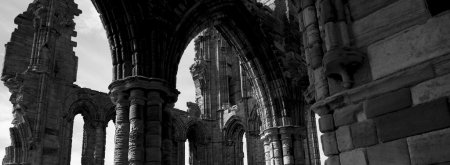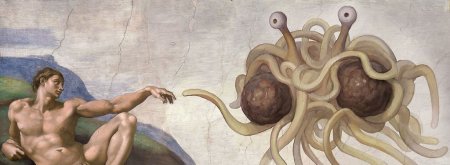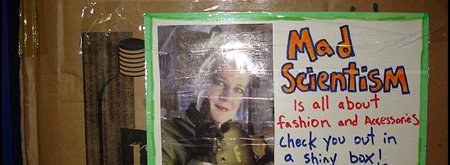The Brothers Hitchens
Christopher Hitchens, the celebrated author and polemicist, never got on with his younger brother, Peter. Some siblings, spawned from the same genetic pool but vastly different in character, temperament and outlook, just don’t. Their constant squabbling prompted their father – a Naval Officer – to draw up a peace treaty for them to sign. Containing about as much sincerity as the 1939 Molotov Ribbentrop Pact, their staged transaction had even less hope of success.
No doubt the protracted battles on the Hitchens home front were a source of disquiet for Yvonne and Eric Hitchens – had they lived long enough they would have seen their two boys’ childhood battles mature into diametrically opposed philosophical positions.
Most famous for his book God is not great – how religion poisons everything, Christopher Hitchens has become, in recent times, a champion of atheism and secular liberalism. He was recently in Australia to promote his memoir Hitch-22 – the release of which is an enticing prospect for readers who know something of his extraordinary life and the wit and sheer command of language that Hitchens guarantees to deliver. (His confession in an interview on ABC’s Lateline that his greatest fear is to be boring is ill-founded to say the least.)
When faith has led to violence and persecution it is because believers have either failed to understand or have misused the teachings of their faith, says Peter Hitchens.
But at the same time that Hitch-22 hits the shelves, so does The Rage Against God – how atheism led me to faith – Peter Hitchens’ personal response to his older brother’s attack on God and all things religious. As you might guess from the title, the younger of the brothers Hitchens, also a noted journalist and author, was at one time an atheist (and radical socialist), but returned to faith in his 30s and has remained a committed believer ever since. This alarming course of events has no doubt added to existing tensions between the two, although the truth is they would have lived very separate lives anyway.
Christopher Hitchens decided upon the folly of religion from a very early age. It’s not hard to see why his early experience of Christianity was a turn-off. Sent to boarding school at age 8, he entered a brutal ‘Tom Brown’s school days’ world where a sadistic and Spartan regimen came to be, in the mind of the young Hitchens, closely associated with the religious trappings of the institution. It was a culture in which “the empire, the church, the cricket field, the war memorial and the monarchy were … sovereign.” (The Rage Against God, p.49) And it’s not entirely surprising that he found little to commend in his experience of Christianity at the time. The post-war liberal theology that had seeped into the Church of England had rendered it a “pathetic bleating sheep” as, not inaccurately, Hitchens describes it.
Peter Hitchens’ own youthful rejection of the faith was marked by a melodramatic, failed attempt to burn his Bible, followed by years embracing a secular creed and international socialism. He writes that he passed through the same atheist revelation that his brother and many self-confident members of his generation experienced as they rejected a sagging post war establishment, where the sheen had somehow been rubbed off everyone from the policeman to the vicar, the local MP to the school headmaster. Engrossed in modernity and technology, his generation came to see God as a nuisance and religion as an embarrassment. (p.23)
But the accidental concord with his brother’s sensibilities was not to last. Indeed Peter Hitchens’ task in The Rage Against God is to directly counteract the arguments of his brother, and those of the other ‘New Atheists’, systematically drawing attention to what he sees as logical flaws, inconsistencies and blind spots.
Are conflicts fought in the name of religion always about religion, as Christopher Hitchens would claim? The younger brother sees such an idea as “a crude factual misunderstanding”. (p.127) When faith has led to violence and persecution it is because believers have either failed to understand or have misused the teachings of their faith, says Peter Hitchens. The problem is not that they are religious, but that “man is not great”. (p.153)
Is it ultimately possible to know what is right and wrong without acknowledging the existence of a deity? Peter Hitchens insists that to be effectively absolute a moral code must be beyond human power to alter. He picks up on his brother’s question of whether there is "any good deed that could be done by a religious person and not done by a Godless one", by insisting that such a question invites another – "What is good and who is to decide what is good?" He argues that atheists mistake inferior codes of common decency with absolute moral systems. "Do unto others as you would have them do unto you" can be arrived at without recourse to religion, but the Christian moral code remains a much more demanding system that involves positive effort for the good of others, often in secret, sometimes at great cost and always without reward.
The most powerful expression of this rests in Jesus words “Greater love has no one than this, that he lay down his life for his friends.” According to Peter Hitchens, “The huge differences that can be observed between Christian societies and all others, even in the twilit afterglow of Christianity, originate in this specific injunction.” (p.143). While Christians rarely live up to such an exacting standard, we all the better for having tried, he argues.
And he absolutely rejects his brother’s strident claim that teaching religious concepts to children is a form of child abuse. It’s a claim that Peter Hitchens says reeks of "totalitarian slander paving the road to suppression and persecution." (p.205) Believers and non-believers should be free to raise their children as they wish. However it would be ridiculous to pretend, says Peter Hitchens, that it is a neutral act to tell a child “the heavens are empty, that the universe is founded on chaos rather than love, and that the child’s grandparents, on dying have ceased altogether to exist." (pp.205-6)
So what brought the prodigal back into the fold? Peter Hitchens’ personal ‘rage against God’ came to an end when he hit marriage and fatherhood – “a cliché of discovery that is too obvious and universal, and also too profound, private and unique to discuss with strangers”, he writes. (p.92) Such reticence to divulge intimate personal details is absent from Christopher Hitchens oeuvre; searing honesty no doubt makes his memoirs appealing to the reader, if potentially wounding for his family. Notably absent from Peter Hitchens’ writing is any mention of his mother’s suicide pact with the lover with whom she had absconded from a devoted husband, the details of which are relayed in painful detail in Hitch-22.
But his experiences living and reporting from Russia and Eastern Europe most profoundly shaped the younger Hitchens’ view of the world. Having lived in Moscow at the close of the Soviet era, and having witnessed other atheistic regimes in full flight, he refuses to accept his older brother’s evasion of what he sees as an organic link between atheism and the most notorious modernist experiments of the 20th century.
It is this experience that appears to shape his concerns for society. The secular dream of utopia remains a dangerous vision that can only be reached across oceans of blood, according to Peter Hitchens. He believes that Christianity is under attack today because it remains the most coherent and potent obstacle to frightening and ruthless idealism:
The concepts of sin, of conscience, of eternal life, and of divine justice under an unalterable law are the ultimate defense against the utopian’s belief that ends justify means and that morality is relative. These concepts are safeguards against the worship of human power. (p.135)
Once a radical socialist, Christopher Hitchens famously abandoned the left after September 11 and unlike his peers argued in favour of the invasion of Iraq. He has not wavered in his support for the war. But if he has shifted over the years, it is nothing compared to his younger brother’s transition from one time socialist to conservative columnist.
Ultimately shrill and often ugly arguments for and against the existence of God mask something deeper and more personal.
In Hitch-22 Christopher describes Peter, with uncharacteristic gentleness, as “to outward appearances almost tragically right wing”. There will be some who would be tempted to dismiss Peter’s arguments because of this. But that would be rather too hasty. His literary quarrel with his brother brings into the light some important counter-arguments to the New Atheist claims. And through his experiences in the Soviet Union he does provide profound observations and warnings about a culture that has banished God from every area of public life.
In The Rage Against God Peter Hitchens says he longs for an argument from atheists that “recognises the possible attractions to the intelligent mind of the religious explanation rather than denouncing all religious belief as stupid.” (p.151) Of course many non-believers are not in that camp and he is no doubt thinking of his brother whose disdain for all religion remains intractable.
But as Peter Hitchens makes clear, it is not really arguments that will win the day or change the heart of a person so sure of a godless universe and the singularly negative impact of religion. “Those who choose to argue in prose, even if it is very good prose, are unlikely to be receptive to a case which is most effectively couched in poetry”, he writes. Ultimately shrill and often ugly arguments for and against the existence of God mask something deeper and more personal.
Something of the personal story is more than evident in Hitch-22, although Christopher Hitchens remains a complex character defying easy psychoanalysis. He says he doesn’t need the supernatural to find purpose in the universe, but seeks a life “that partakes even in a little friendship, love, irony, humour, parenthood, literature, and music, and the chance to take part in battles for the liberation of others” (Hitch-22, p.331). Noble and worthy goals indeed. His younger brother would no doubt agree, but would add ‘communion with the creator’ to round out the picture.
So what is it that the brothers are left with? Do they have anything in common, to at least get them through a roast turkey and plum pudding at an awkward Christmas dinner? Peter Hitchens describes a public debate with Christopher on the existence of God at Grand Rapids Michigan in 2008 in which, despite the hopes of the gathered throng, both men refrained from a public mauling of each other. Somehow it didn’t feel right. He says it was as if the longest quarrel of his life was over.
“On this my brother and I agree: that independence of mind is immensely precious, and that we should try to tell the truth in clear English even if we are disliked for doing so.” (The Rage Against God, p.218)
© 2008 Centre for Public Christianity
This is an extended version of an article that first appeared in the Sydney Morning Herald.



